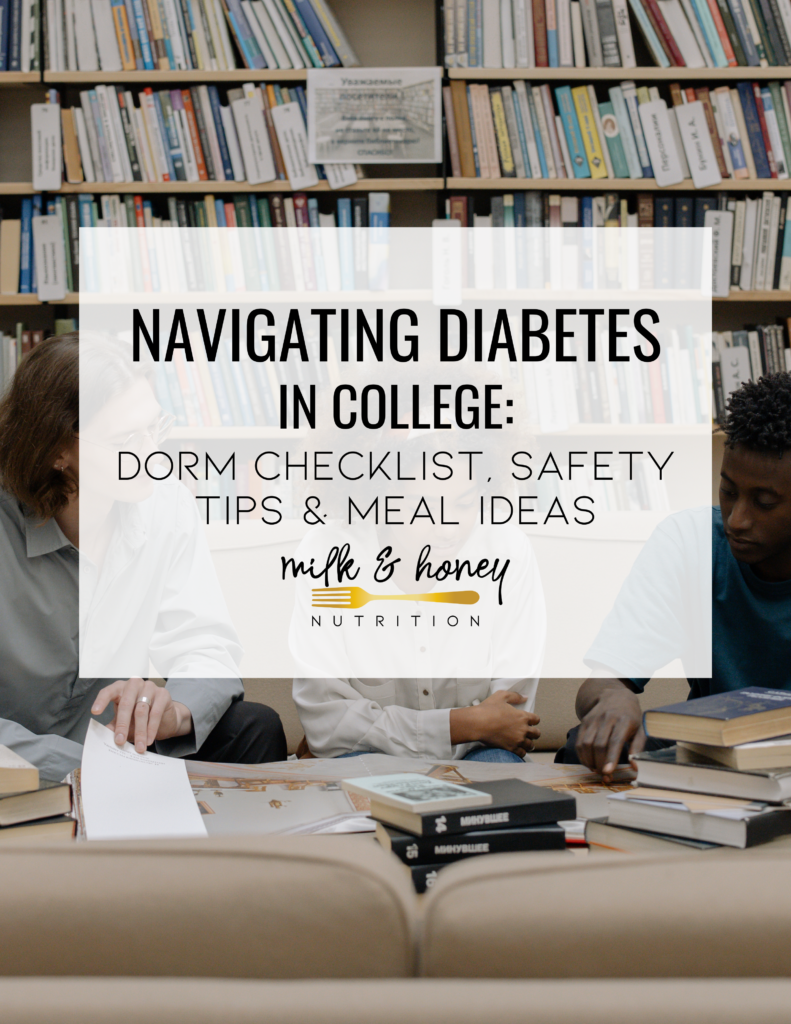
College with diabetes can seem intimidating, but it doesn’t have to be.
College is an exciting time, but that doesn’t mean the transition is easy, especially when you have diabetes. This resource will go over tips and tricks to navigate college with diabetes and prepare well for this new chapter.
This article was written by Milk & Honey Nutrition intern, Ashley Kim. Learn more about Ashley here.
Can people with diabetes go to college?
Yes! The goal of this resource is to make sure you don’t feel limited by your diabetes when navigating college life. College years are some of the most memorable and formative years of one’s life. However, there are extra preparations you’ll need to take with your diabetes care team and family compared to students without diabetes.
Are there college scholarships for diabetes?
Diabetes is an expensive disease, so scholarships can go a long way. Luckily, there’s a variety of scholarships available for students with all types of diabetes!
These scholarships can be specific to your state, extracurriculars, or academic goals. This article provides a thorough list of many scholarships available to students with diabetes.
College accommodations for students with diabetes
Registering for accommodations can make a huge difference when you have diabetes in college. There are reasons you should take advantage of the benefits your school may offer.
While accommodations look different across schools, here are some common ones offered:
- Exam rescheduling
- Ability to retake exams
- Ability to bring food and medical supplies to exams
- Priority course registration
- University housing flexibility
- Meal plan flexibility
Is diabetes considered a disability for college students?
The Americans with Disabilities Act (ADA) defines a person with a disability as someone “who has a physical or mental impairment that substantially limits one or more major life activities.” Students with all types of diabetes are protected under the ADA and have the legal right to get accommodations in college.
Why should I register my diabetes with the disabilities and auxiliary services at college?
If you have diabetes, you know all too well how high and low blood sugars can affect performance. This affects your ability to focus during class, study for exams, or even attend classes. You’re a student with diabetes, not a diabetic who happens to be a student. The last thing you should be worried about during finals week is how you’ll treat a low during a test. Advocate for yourself by taking advantage of these services.
Contact your university’s disability services department for more information.
Type 1 diabetes, type 2 diabetes, & college
There are clear differences between type 1 and 2 diabetes, but that doesn’t make one better than the other. Unfortunately, there’s a negative stigma around type 2 diabetes that can make it hard for these students to manage campus life.
The truth is simple: type 2 diabetes is a disease. No one should feel ashamed about their diabetes. College is intimidating enough as it is, there’s no need to go through it alone with diabetes.
Luckily, the ADA covers all types of diabetes, including type 2. Show yourself kindness and don’t keep your health a secret! Read this article for more information about diabetes and reducing social stigmas.
Before you go to college with diabetes…
Before you move in, it’s important to discuss with your family and diabetes care team about your new arrangements. It’s especially important if you’re moving far from home, away from family and your care team. Discuss the following before move-in day:
- Figure out who and where your new healthcare team will be
- How and where to get medication and supplies
- Sick day plan
- Frequency of communication with family
- Available campus accommodations
Social Circle
College is a great time to make new friends. While you don’t have to tell everyone you meet about your diabetes, it’s good to find those few friends to trust when you’re away from family.
Share with roommates or friends how they can help you with your diabetes:
- How to recognize your symptoms for high and low blood sugars
- What to do in case of a diabetic emergency
- Where to find your emergency kit that includes the following:
- Glucagon kit
- Glucose tablets
- Foods to treat lows
- Glucose meters and strips
- Ketone meters and strips
- Emergency contact list
- If you live alone, share your key with a close friend
While there are many ways friends and roommates can help, there are also things you can ask them not to do. Share the questions, comments, or actions related to your diabetes that you may not feel comfortable with.
Diabetes Link Network
Expand your social circle virtually and on campus with the Diabetes Link Network. This network used to be called the College Diabetes Network, founded by a student with type 1 diabetes. They’re a non-profit organization with the goal of helping students and young adults with diabetes thrive.
They have College Chapters all over the United States. You can look on their website to see if your school offers one, or you can start your own! They also provide free resources and opportunities to connect with peers.
Diabetes care in college
Highs and Lows
Everyone has different sensitivities when it comes to recognizing their high and low symptoms. This can make it tricky to remember when to check or test blood sugar.
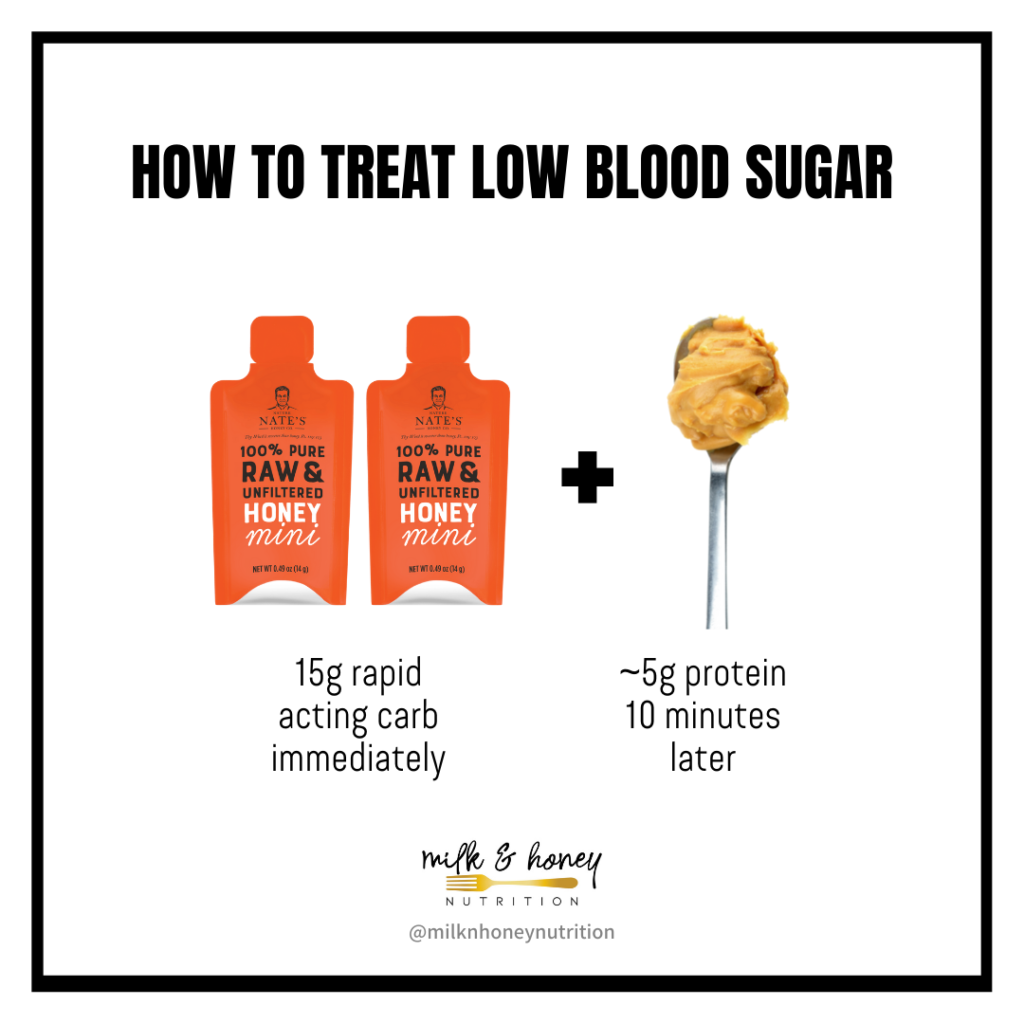
When you don’t have a continuous glucose monitoring system (CGM), it’s even harder to remember. Especially when you’re busy and away from your normal caretakers. Try to get into a rhythm of checking your blood sugar throughout the day. This is especially important during stressful exams and sick days. Try the following to start your routine:
- Include it in your planner
- Leave reminder notes around the dorm/apartment
- Set alarms on your phone, watch, or watch
Night time low blood sugars
Nocturnal, or night time, low blood sugars happen more often than you think. There are a few factors that can make the risk higher. These include:
- Exercise earlier in the day
- Drinking alcohol
- Skipping dinner
- Missing night time snacks
- Too much basal insulin
Have an emergency snack box within reach from your bed in case you need to treat a low. It’s important to choose foods that have rapid acting carbs and don’t take much energy to chew and swallow. Check out this article for snacks to include in your kit.
Diabetes, college, and sick days
Sick days away from the family are the worst. When you’re sick, the body naturally releases more hormones that can increase blood sugar. You also might find it hard to eat or drink when you’re sick. These factors make managing blood sugar unpredictable and trickier than normal.
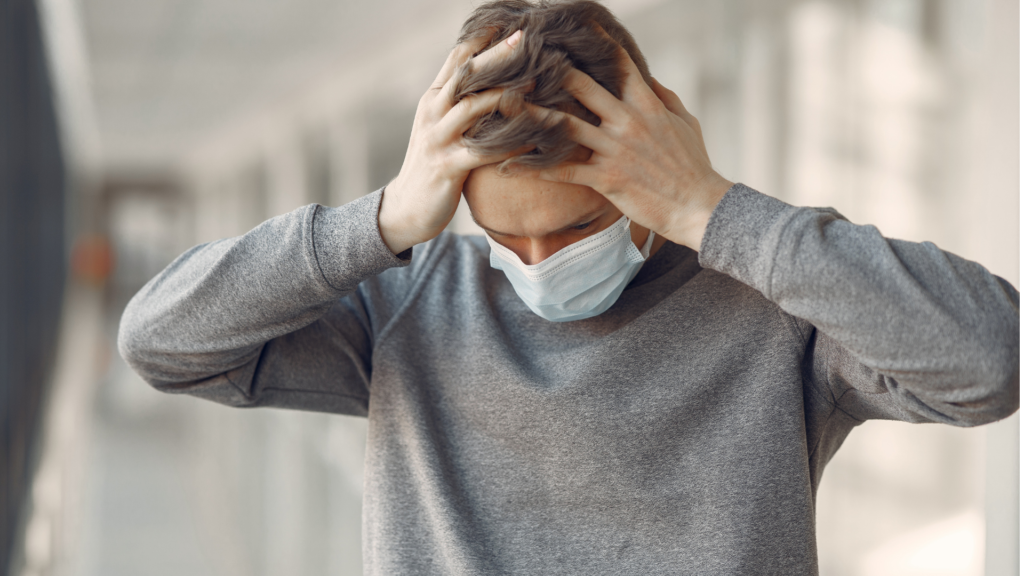
College with diabetes: Sick day guidelines
Follow these steps to take care of yourself while you’re sick and away from home:
- Communicate. Make sure to let key people know if you have to miss school or work because of illness or diabetes related issues. This includes professors, teaching assistants, residential advisors, classmates, etc.
- Talk to your diabetes care team about a sick day regimen. This includes over the counter medications and meals.
- Continue to take insulin and medications. If you’re on insulin, you might have to adjust how much you’re dosing. But continue to take insulin, even when your blood sugars look normal.
- Test/check blood sugars frequently. It’s good to check every 2-3 hours because blood sugar can be unpredictable when you’re sick.
- Check for ketones. It’s so important to check your ketones when you’re sick. It’s possible to still test positive for ketones when your blood sugar looks low or normal.
- Hydrate more than usual. Fluids are important for all sick people. It’s especially important for sick people with diabetes. That’s because dehydration can cause high blood sugars and lead to diabetic ketoacidosis (DKA).
- Eat as normally as possible. Appetites can be decreased on sick days. If you’re having a hard time keeping food down, try to choose soft, bland foods and non-sugary beverages.
Sick day kit and checklist
When you’re feeling under the weather, it can be tricky to gather your supplies and remember all the things you need to do. Making a kit and checklist in advance might be a good idea to make those days a little easier!
Stock your kit with the essentials below:
- Ketone meter and test strips
- Glucose meter and test strips
- Pump and CGM supplies
- Extra batteries
- Glucagon emergency kit
- Over the counter medications (discuss with your diabetes care team)
- Sugar-free electrolyte drinks
- Sugar free cough drops
- Thermometer
- Easy to eat snacks and drinks
- Juice
- Gelatins
- Glucose gels
- Regular soda
- Apple sauce
- Crackers
- Graham crackers
- Canned soups
Alcohol, college, & diabetes
Let’s address the elephant in the room: drinking in college. It’s no secret that it happens. What’s important is that it’s handled with caution, so you can have a fun and safe time.
Alcohol has carbs that can increase blood sugars if not consumed carefully. However, after drinking, low blood sugars are common. What can be extra scary is your usual low blood sugar symptoms can look and feel a lot like being drunk, making it hard to tell.

College with diabetes: Alcohol safety
If you choose to consume alcohol, follow these tips to make sure you’re being safe.
- Never drink on an empty stomach. Eat a nutritious meal before you begin drinking. You can even take along a snack with you for the night.
- Share your signs and symptoms with your friends. You can go high or low from alcohol use with diabetes. Tell your friends what your symptoms look like for both and how they can help if something happens.
- Hydrate with water. Alcohol dehydrates the body and that increases your risk for DKA.
- Eat a late night snack. Eating a snack before bed can help your blood sugars stay stable during the night.
- There’s no such thing as over checking. Check/test blood sugar before, during, and after you drink. Even if you aren’t feeling symptoms, it’s important to check. Do not consume alcohol if your blood sugar is out of range, high or low.
- Set an alarm. Again, it’s important to check your blood sugar more often than not when you consume alcohol. Set an alarm in the middle of the night for you to check your blood sugars in case you have to treat a low.
- Know when to say no. You are your own biggest advocate when you go out. Learn how to stand up for yourself and do what it takes to be safe.
For more information on drinking alcohol with diabetes, check out this article on type 1 & type 2 diabetes and alcohol + 5 rules to follow. And, remember that the safest course of action will always be to abstain from consuming alcohol.
Navigating Dorm Life in college with diabetes
In the dorm, resident advisors (RAs) are usually in charge of day to day life. Share with your RA about your diabetes. Make sure they have a copy of your emergency contact list. RAs are the ones with access to your room if someone can’t get in to help you, so it’s important for people to know how to contact your RA.
Dorm Organization
- Use storage containers. Keep all your diabetes stuff together in one place. Read this article for more tips for diabetes supplies.
- Label everything (especially your emergency snack stash). If you have roommates, it’s very common for people to mix things up and take things that aren’t theirs (hopefully not on purpose). Labeling your items helps.
- Stock up. In college, you have a billion things on your plate, not including diabetes. The last thing you’ll want is to realize you ran out of something during a busy week. Make sure you have enough supplies that’ll last for the semester.
Dorm friendly appliances
Most dorms don’t have a full kitchen, but will allow small appliances. Check with your RA and campus accommodations to see what you’re allowed to have. The following are some suggestions:
- Microwave
- Mini fridge
- Small blender
- Panini press
- Toaster oven
- Air fryer (check out this free eBook on air fryer basics)
- Rice cooker
- Electric lunch cooker or Instapot
- Hot plate
Cooking in the dorm with diabetes
Check out these 8 dorm friendly recipes that you can whip up with limited kitchen tools!
- Low Sugar Chocolate Caramel Oatmeal Protein Balls
- Low Sugar Peanut Butter Fruit Dip
- Breakfast Egg Cups
- Guacamole for 1
- French Toast in a Mug
- No Bake Lemon Cheesecake Bites
- Best Tuna Salad with Egg
- Healthy DIY Pizza Lunchables
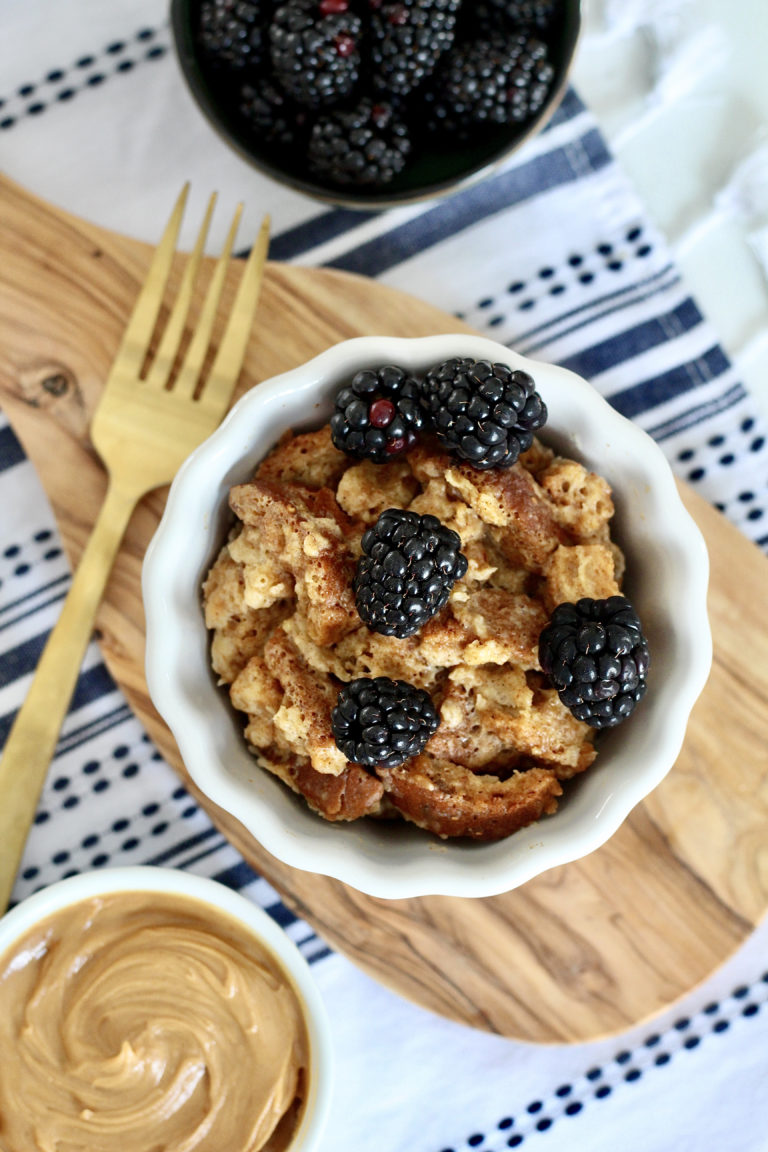
Diabetes-Friendly Microwave French Toast in a Mug
And if you have access to a kitchen, I have 2 cookbooks for easy diabetes friendly recipes.
Navigating the dining hall in college with diabetes
Meal plans and dining halls vary depending on the campus. Here are some general tips that can help you navigate the dining hall:
- Ask for help. The staff at the dining hall will be able to help you find accurate carb counts. Don’t be afraid to ask the staff for extra resources and help!
- Make a plan. Going to the dining hall hungry and without a plan is like going grocery shopping hungry. You’ll get way more than you actually need. Look at what the diner offers for the week and plan in advance.
- Balance your plate. Choose foods with lots of healthy fat, fiber and protein.
- Personalize your choices. You can choose how to balance your own meal.
At the end of the day, make your meal plan work for you. Going to the diner with friends is what makes the college experience unique. Be patient with yourself as you learn and adjust.
College with diabetes friendly snacks
There are so many great packaged snack options for diabetes out there. When you’re a busy student, packaged snacks can be a life saver!
And even though your campus accommodations might let you snack in class, it’s still awkward crinkling wrappers or crunching on crackers in the middle of someone’s lecture. Here are some quiet snacks you can munch on in class without drawing attention to yourself:
- Soft fresh or dried fruits
- Gummies
- PBJ sandwiches
- Apple sauce packets
- Chewy granola bars
- String cheese
Free College Dorm Packing List
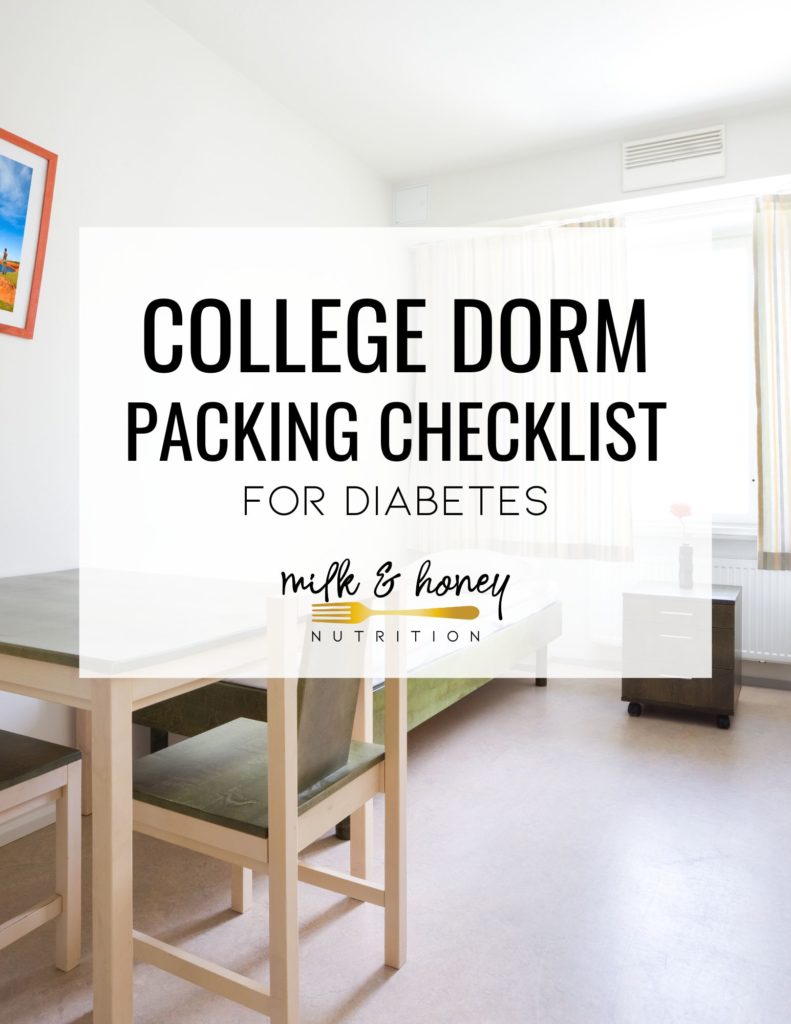
Need some help preparing to leave for college? Download my free college dorm packing list and Your Complete Guide to Moving to College with Diabetes (eBook) to use before move in week!






